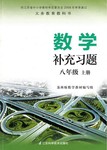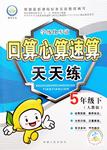题目内容
She feels ________ her duty to help others.
- A.that
- B.this
- C.it
- D.those

 补充习题江苏系列答案
补充习题江苏系列答案 学练快车道口算心算速算天天练系列答案
学练快车道口算心算速算天天练系列答案My husband is a born shopper(天生的购物者). He loves to look at things and to touch them. He likes to compare prices between the same items(产品) in different shops. He would never think of buying anything without looking around in several different shops. On the other hand, I’m not a shopper. I think shopping is boring and unpleasant. If I like something and I have enough money to take it, I buy it at once. I never look around for a good price or a better deal. Of course my husband and I never go shopping together. Doing shopping together would be too painful for both of us. When it comes to shopping, we go our different ways.
Sometimes I ask my son Jimmy to buy some food in the shop not far from our home. But he is always absent-minded. This was his story.
One day I said to him, “I hope you won’t forget what I have told you to buy.” “No,” said Jimmy, “I won’t forget. You want three oranges, six eggs and a pound of meat.”
He went running down the street to the shop. As he ran, he said to himself over and over again. “ Three oranges, six eggs and a pound of meat.”
In the beginning he remembered everything but he stopped several times. Once he saw two men fighting outside a clothes shop until a policeman stopped them. One of them was badly hurt. Then he stopped to give ten cents to a beggar. Then he met some of his friends and he played with them for a while. When he reached the shop, he had forgotten everything except six eggs.
As he walked home, his face became sadder and sadder. When he saw me he said, “ I’ m sorry, mum. I have forgotten to buy oranges and the meat, I only remembered to buy six eggs, but I’ve dropped three of them.”
【小题1】 The husband loves shopping because _______
| A.he has much money |
| B.he likes the shops |
| C.he likes to compare the prices between the same items |
| D.he has nothing to do but shopping |
| A.she has no money |
| B.she has no time |
| C.she doesn’t love her husband |
| D.she feels it boring to go shopping |
| A.their ways of shopping are quite different |
| B.they hate each other |
| C.they needn’t buy anything for the family |
| D.they don’t have time for it |
| A.he is young | B.he is absent-minded |
| C.he often loses his money | D.he doesn’t like shopping |
“Sending thank-you notes is becoming a lost art,” mourns May Mitchell, a syndicated columnist known as “Ms Demeanor” and author of six etiquette(礼节) books. In her view, each generation, compared with the one before, is losing a sense of consideration for other people. “Without respect,” she says, “you have conflict.”
Ms. Demeanor would be proud of me: I have figured out a way to ensure that my children always send thank-you notes. And such a gesture is important, says Ms. Demeanor, because “a grateful attitude is a tremendous life skill, an efficient and inexpensive way to set ourselves apart in the work force and in our adult lives. Teach your children that the habit of manners comes from inside---it’s an attitude based on respecting other people.”
A few years ago, as my children descended like piranhas (一种南美淡水鱼,喜吞食或攻击) on their presents under the Christmas tree, the only attitude I could see was greed. Where was the appreciation of time and effort?
A thank-you note should contain three things: an acknowledgement of the gift (Love the tie with the picture of a hose on it); a recognition of the time and effort spent to select it (You must have shopped all over the state find such a unique item!); a prediction of how you will use your gift or the way it has enhanced your life (I’ll be sure to wear it to the next Mr. Ed convention!).
So, five years ago, in one of my rare flashes of parental insight, I decided that the most appropriate time to teach this basic courtesy is while the tinsel (装饰用光亮金属) is hot. To the horror of my children, I announced that henceforth every gift received will be an occasion for a thank-you note written immediately, on the spot.
I have reluctantly given my kids the green light to send e-mail thank-you notes; though hand-lettered ones (at least to me) still seem friendlier. But pretty much any thank-you makes the gift giver feel special—just as, we hope, the recipient feels. It’s a gesture that perfectly captures the spirit of the holidays.
41. 1.in Ms. Demeanor’s point of view, children born in the ______ is probably the least respectful generation.
|
A.1960s |
B.1970s |
C.1980s |
D.1990s |
42. 2. The phrase “set oneself apart” (Para. 2) means _______.
|
A.to reserve to a particular use |
B.to put to one side |
|
C.to make noticeable or outstanding |
D.to determine to purse |
43. 3.According to the passage, a thank-you note may contain the following information EXCEPT “_______”.
|
A.I love the pearl necklace you bought me for my birthday |
|
|
B.it must have taken you a long time to find just the right thing for me |
|
|
C.is it very expensive |
D.I promise I will wear it on my wedding day |
44. 4.How did the author feel when she saw her children searching under the Christmas tree for their presents?
|
A.Greedy. |
B.Cheerful. |
C.Laughable. |
D.Disheartened. |
45. 5.Which of the following statements is NOT TRUE about the author?
|
A.She feels hand-written letters are friendlier than word-processed ones. |
|
B.She does not allow her children to sent email thank-you note. |
|
C.She thinks the best time to teach her children the basic etiquette of appreciation is to strike while the iron is still not. |
|
D.She thinks a thank-you note can make the gift giver feel special just as the |
recipient does.